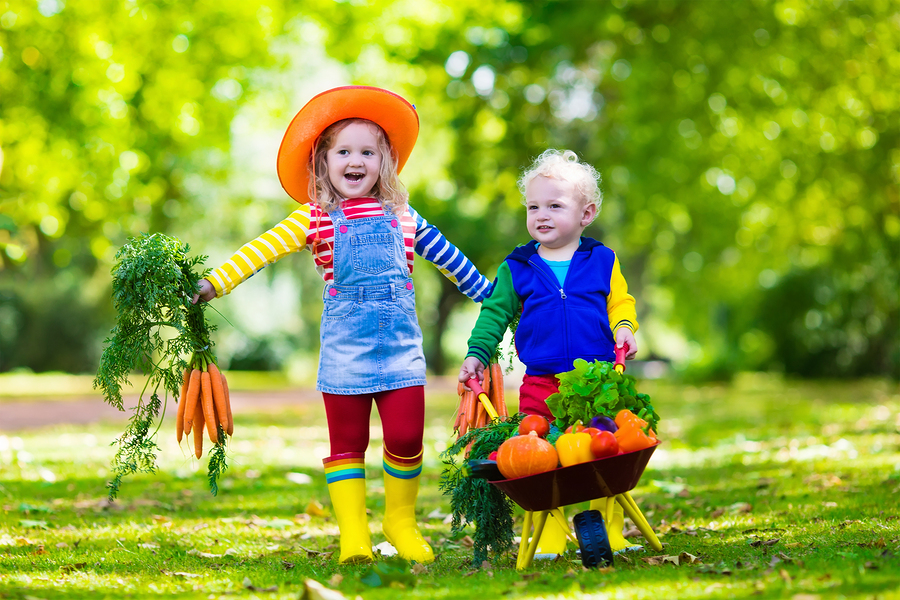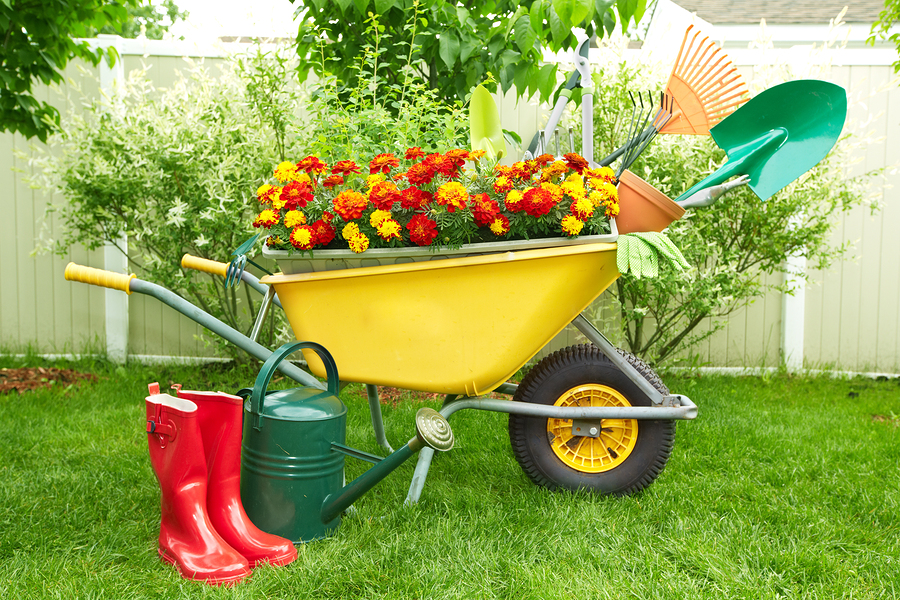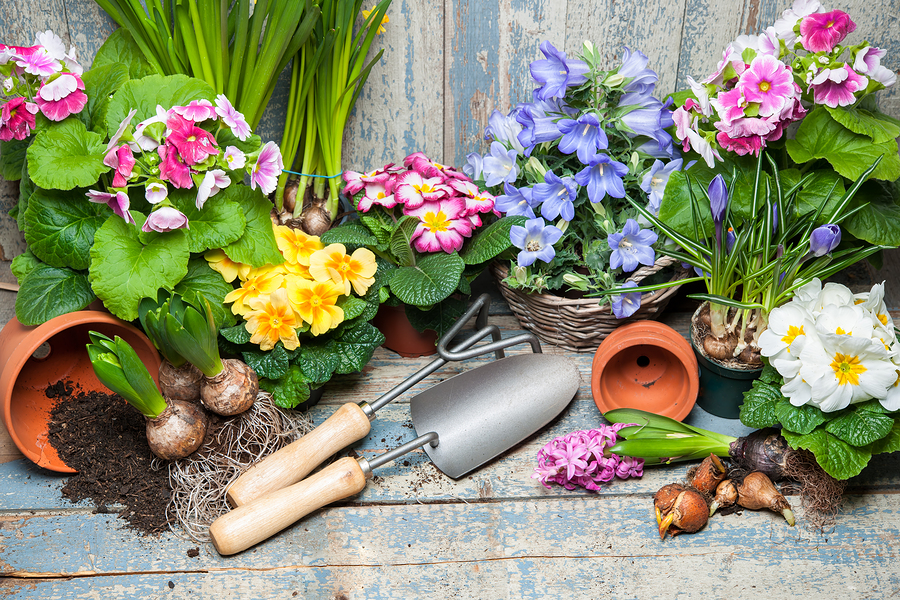- Make It Yourself Lavender Heart-Shaped Bath Bombs!
- 20 Things You Never Knew About “Down There”
- 12 Best Foods For Those Suffering From Arthritis Pain
- 12 Personal Hygiene Mistakes Almost Everyone Makes (Mom Never Told You About #4!)
- 15 Medicinal Plants And Herbs From The Cherokee People
- 12 Mind-Blowing Benefits Of Drinking Coconut Water During Pregnancy
- 12 Outstanding Winter Foods That Won’t Fatten You Up Like A Christmas Turkey
6 Great Tips To Create A Successful Tiny Garden!
Gardening is becoming more and popular with all kinds of people in all kinds of lifestyles. Growing your own food isn’t just for the flower child and your grandma that remembers Victory Gardens. As organic fruits and vegetables are becoming more and more accepted and desired above their conventionally grown counterparts, those with a limited budget are realizing that they can do better. Not only will a garden allow you to grow your own food but it will benefit your lifestyle by giving you control over what you put on your plants and what kinds of chemicals you do, or don’t, put on them.
That’s all fine and great for those that have land and space for them to utilize for a spacious garden. As little as a quarter acre will allow you to grow pretty much anything your heart desires and to able to feed yourself and your family from your garden. But what if you have less space than that? Or no space at all, as many in apartments are finding themselves in this predicament. Not only do they not have a physical piece of land to use, but they are also restricted by close neighbors and landlords. Fortunately, there are a few solutions to these predicaments.
Growing a garden doesn’t necessarily have to be done in a large space – tiny garden are just as beneficial as large ones and, hey, a little goes a long way. If you’re finding yourself restricted by space and other variables, check out the below methods to help you maximize your garden space. Utilizing what you have is simply a matter of timed planting, proper arrangement, and a little bit of organization.
1. Don’t Waste Space
If you’re serious about having a garden, there’s nothing that will stop you from digging up that tiny yard of yours and using it for something beneficial. Besides, there are plenty of ways and designs you can incorporate to still have space to relax and even entertain if you wish. To not waste any space, grow any climbing plants, such as cucumbers and zucchini, vertically. Plant in a triangle pattern which helps to maximize space by as much as 15 percent and also keeps your plants less susceptible to diseases from the soil. Not wasting space also means taking advantage of all the space you have – which can include your front porch, back porch, around trees, and even in containers on any tables you have outside.
2. Use Raised Beds Or Containers
Raised garden beds are not just for show – not only do they actually help to make your garden more successful but they also give you less work. Raised beds usually contain better soil are can be customized to the area where you live which means that you’re giving your garden the best shot at providing food for you. Less work for you means that you won’t be spending all day pulling weeds, since raised garden beds tend to usually have a layer of protection on the bottom, meaning that weeds won’t get through and vie for nutrients with your precious plants. Using containers if you’re somewhere without access to land is a great idea for still having a garden if you’re, say, in an upper apartment. Make sure to choose containers that are large enough for each plant and to provide proper draining soil according to each plant’s needs.
Continue to Page 2
3. Don’t Be Boring
Planting different, compatible plants in the same bed ensures that both species are better off. Usually, the reason the two are compatible is because they help to keep each other healthy or to produce better. Both are wins for your garden, where even one plant’s loss is felt very much. Research which types of plants do well together and plan on planting those together for maximum garden success. Also, remember that many herbs are helpful to plants as well since they’re usually strong smells keep the insects and plant-eaters at bay.
4. Choose Perennials
These plants will grow back year after year without you having to plant them again. Not only does it save you time, but most of these will also increase their production every year and be more and more successful in your garden. They’re also great for improving the health of your soil since it doesn’s need to be tilled and taken out every year. Raspberries, blueberries, and strawberries all grow back year after year and they each make great container plants. Other perennial vegetables include asparagus, rhubarb, horseradish, globe artichoke, watercress, capers, and even some species of kale.
Continue to Page 3
5. Plan Two Harvests
Many people are unaware that you can actually have two harvests a year – one in late summer and one in late winter/early spring. There are many plants that will grow over the winter months and some in fact even prefer colder weather. You can plan your tiny garden around these plants and get even more out of your space. Vegetables that can be planted in late August include carrots, cabbage, kale, beets, broccoli, cauliflower, and brussels sprouts. It might seem like you’re giving yourself more work, but since most vegetables are not perennials the places where you had annual plants like tomatoes and onions will be empty come August anyways.
RELATED: 9 Herbs You Can Grow In Water On Your Windowsill Video
6. Take It Indoors
Sometimes, the lack of space forces people to come up with ingenious ideas. I bet that’s how someone thought of window boxes for planting flowers. But why plant flowers when you can have an herb garden handy? If you’re running out of space outdoors, take the plants in. Many people have thriving tabletop gardens thanks to hydroponic systems or by using small pots. Taking the garden in also means you can extend the life of your plants for those that are more susceptible to the cold or heat. And tabletops are not the only place you can place plants – if they’re in view of a window or sunny area, plants can thrive on bookshelves, in living rooms, bathrooms, and anywhere else you can set a pot.
Gardens are a great way to get in your fruits and vegetables without going over your budget. Whether you’re trying to eat more healthy or you’re finding yourself with a budget to stretch, gardens can provide food for you and your family no matter how small of a space you have. Take advantage of perennial plants, using raised beds, and using every bit of space you have to the maximum. Garden are great sources of fruits and vegetables for all people and types of lifestyles.




































